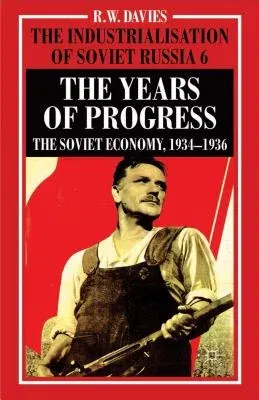R Davies
(Author)The Industrialisation of Soviet Russia Volume 6: The Years of Progress: The Soviet Economy, 1934-1936 (2014)Hardcover - 2014, 9 July 2014

Qty
1
Turbo
Ships in 2 - 3 days
In Stock
Free Delivery
Cash on Delivery
15 Days
Free Returns
Secure Checkout

Part of Series
Industrialization of Soviet Russia
Print Length
496 pages
Language
English
Publisher
Palgrave MacMillan
Date Published
9 Jul 2014
ISBN-10
0333586859
ISBN-13
9780333586853
Description
Product Details
Author:
Book Edition:
2014
Book Format:
Hardcover
Country of Origin:
US
Date Published:
9 July 2014
Dimensions:
21.84 x
14.22 x
3.81 cm
ISBN-10:
0333586859
ISBN-13:
9780333586853
Language:
English
Location:
London
Pages:
496
Publisher:
Weight:
839.15 gm